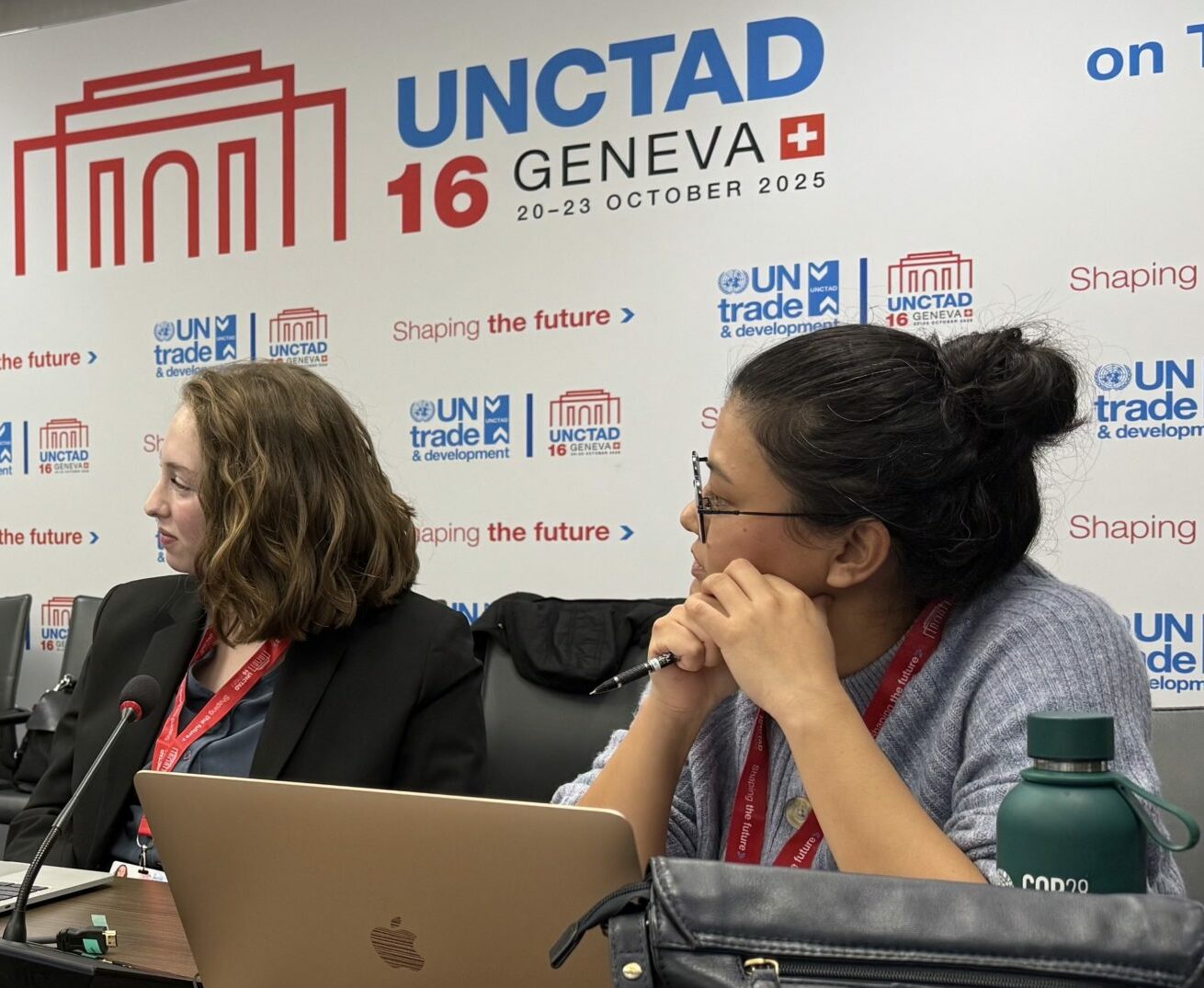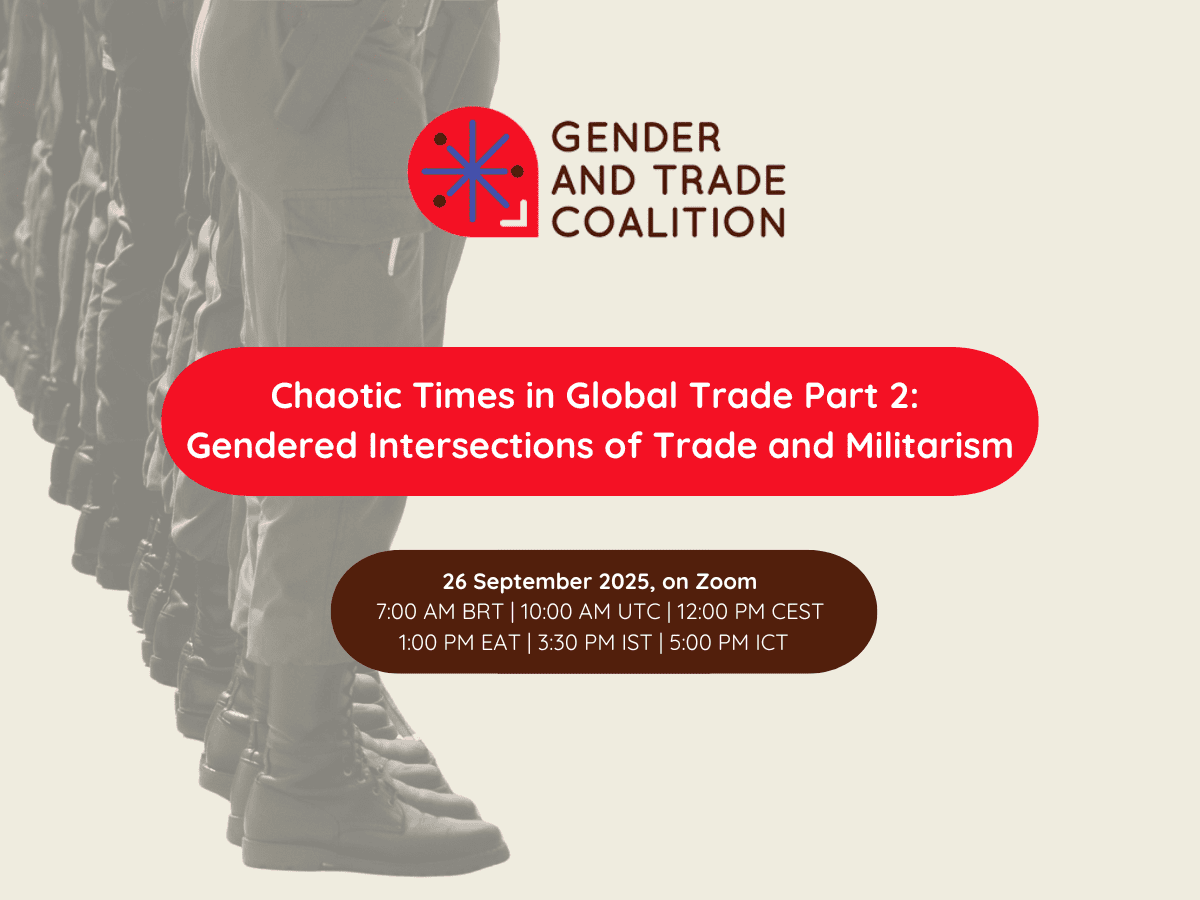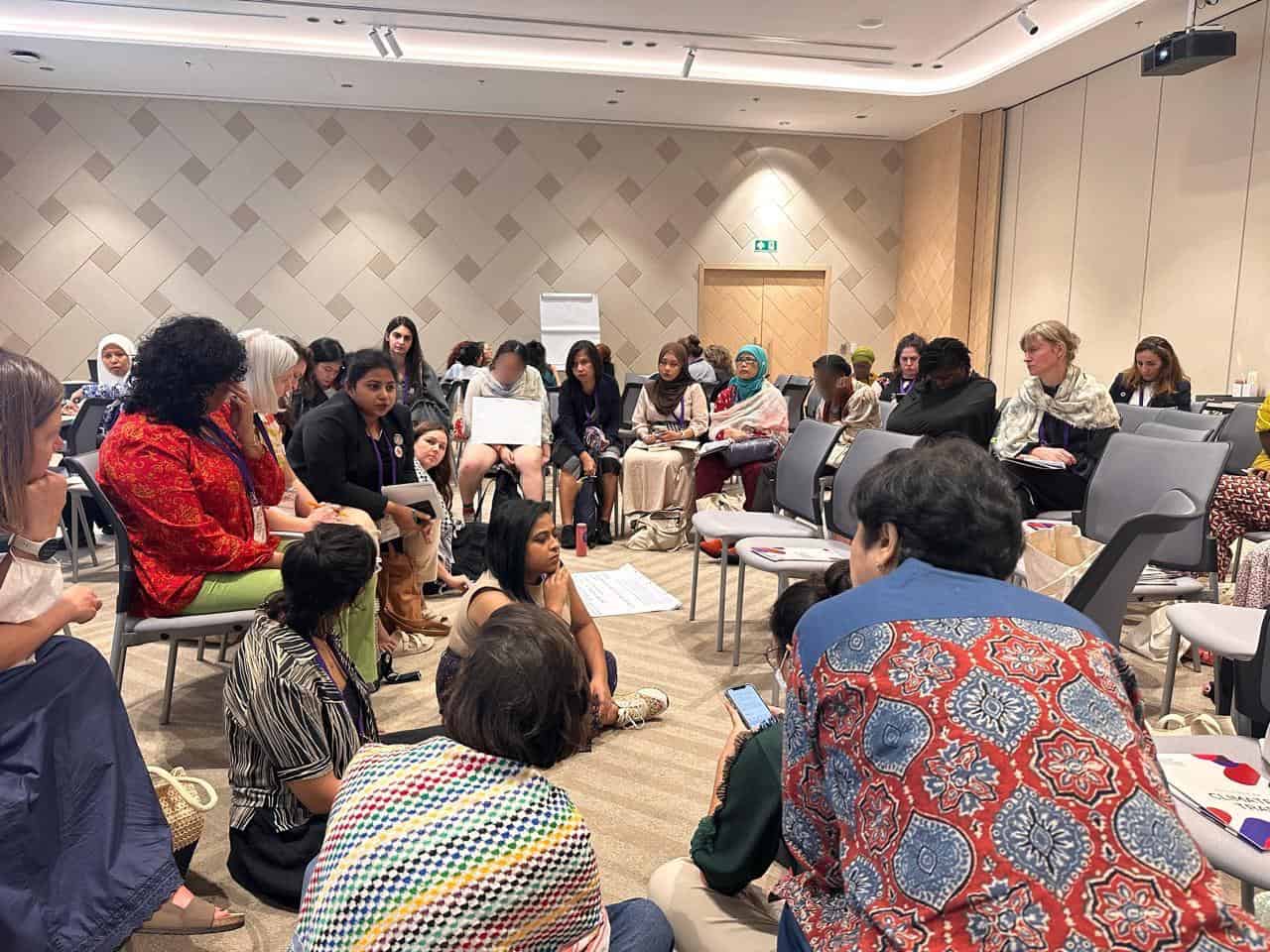UNCTAD was established in the post-decolonization era as a hard-won demand from the Global South. It was meant to counterbalance the Bretton Woods institutions and provide space for developing countries to pursue international economic reform and structural transformation. It remains an essential space for advancing the goal of a just international economic order. UNCTAD’s mandate to support developing countries in using global trade as a means of structural transformation remains deeply relevant for achieving every aspect of feminist economic justice.
The 16th session of the United Nations Conference on Trade and Development (UNCTAD16) followed on the heels of the Fourth Conference on Financing for Development (FfD4), where the outcomes fell largely short of systemic reform. For this reason, it was seen by many feminists as a test of multilateralism and as a critical forum to counter the false solutions and gender-blind analysis that define the Compromiso de Sevilla. This Gender and Trade Coalition (GTC) UNCTAD16 side event, co-convened by Regions Refocus and the Asia Pacific Forum on Women, Law and Development (APWLD), presented a feminist analysis of the intersections of trade and debt justice, and voice feminist demands to achieve them.
Held at the Palais des Nations, the event was moderated by Sanila Gurung (APWLD), who opened the event by introducing the GTC before focusing her intervention on the lived realities of women in Global South countries who are in debt crises. It was a powerful grounding for the whole session, of who needs action on debt and trade injustice the most. Next, Erica Levenson (Regions Refocus) connected these lived realities to the structural problems which have created them: fundamentally unbalanced global trade, which uses women as disposable sources of cheap labor, reinforces debt dependency, and hollows out states. Luiz Vieira (Bretton Woods Project) spoke next, connecting the structural problems of unjust trade and debt and the lived realities of women to the practices of the Bretton Woods Institutions. He reinforced the need for an institution like UNCTAD to counter this hegemony. Penelope Hawkins (UNCTAD) was our final speaker, sharing what UNCTAD is doing to take action on debt crises and what this action means for trade injustice, and women and girls. This made it all the more crucial to protect UNCTAD’s role and work, especially on the Borrowers’ Platform, in the UNCTAD16 Outcome Document.





